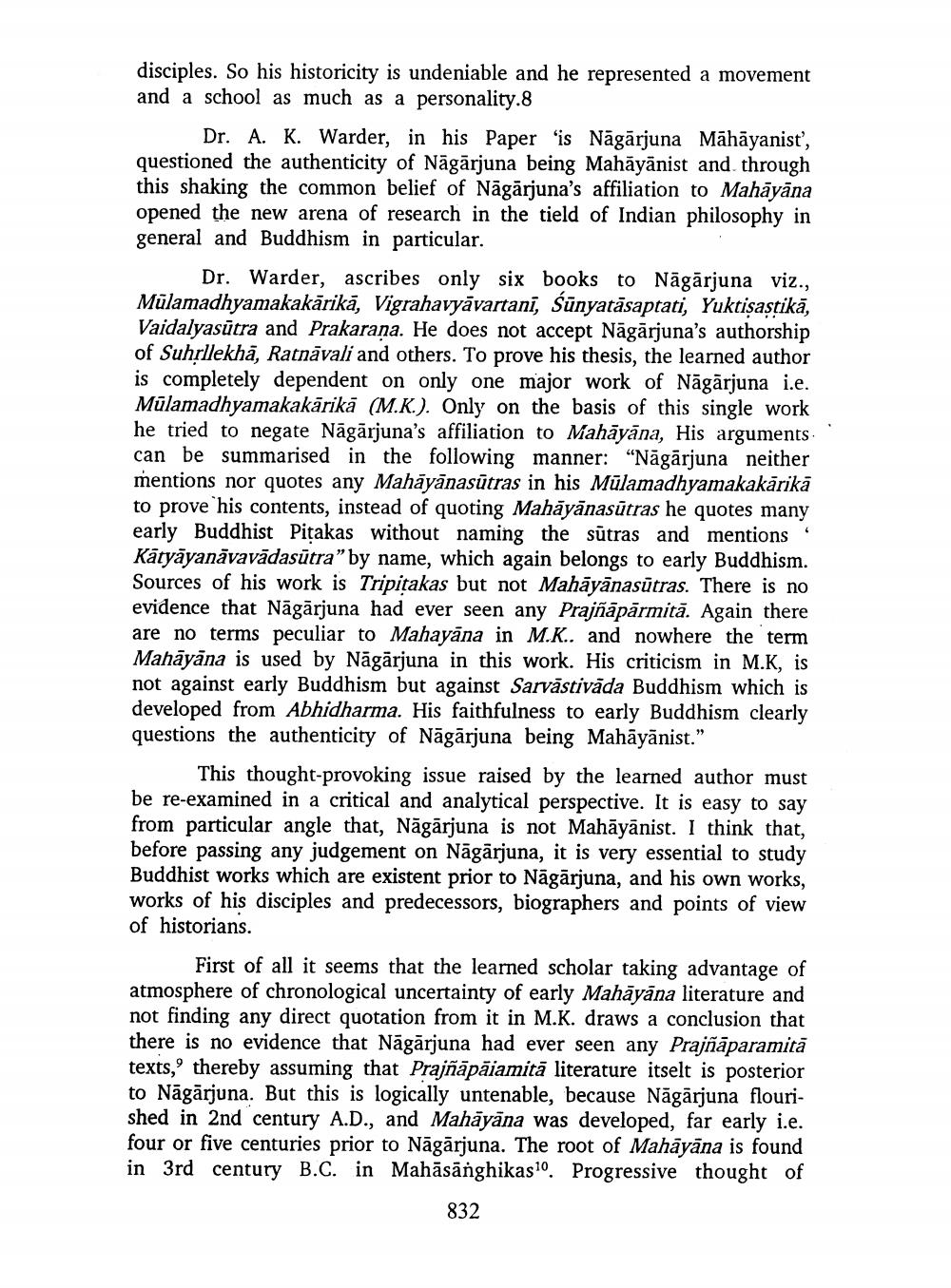________________
disciples. So his historicity is undeniable and he represented a movement and a school as much as a personality.8
Dr. A. K. Warder, in his Paper 'is Nāgārjuna Māhāyanist', questioned the authenticity of Nagarjuna being Mahāyānist and through this shaking the common belief of Nagarjuna's affiliation to Mahāyāna opened the new arena of research in the tield of Indian philosophy in general and Buddhism in particular.
Dr. Warder, ascribes only six books to Nāgārjuna viz., Mulamadhyamakakārikā, Vigrahavyāvartani, Śūnyatāsaptati, Yuktiṣastikā, Vaidalyasūtra and Prakarana. He does not accept Nāgārjuna's authorship of Suhrllekha, Ratnavali and others. To prove his thesis, the learned author is completely dependent on only one major work of Nagarjuna i.e. Mulamadhyamakakārikā (M.K.). Only on the basis of this single work he tried to negate Nagarjuna's affiliation to Mahāyāna, His arguments can be summarised in the following manner: "Nagarjuna neither mentions nor quotes any Mahāyānasūtras in his Mūlamadhyamakakārikā to prove his contents, instead of quoting Mahāyānasūtras he quotes many early Buddhist Pitakas without naming the sutras and mentions Katyāyaṇāvavādasūtra" by name, which again belongs to early Buddhism. Sources of his work is Tripitakas but not Mahāyānasūtras. There is no evidence that Nagarjuna had ever seen any Prajñāpārmitā. Again there are no terms peculiar to Mahayana in M.K.. and nowhere the term Mahāyāna is used by Nagarjuna in this work. His criticism in M.K, is not against early Buddhism but against Sarvāstivāda Buddhism which is developed from Abhidharma. His faithfulness to early Buddhism clearly questions the authenticity of Nagarjuna being Mahāyānist."
This thought-provoking issue raised by the learned author must be re-examined in a critical and analytical perspective. It is easy to say from particular angle that, Nagarjuna is not Mahāyānist. I think that, before passing any judgement on Nagarjuna, it is very essential to study Buddhist works which are existent prior to Nāgārjuna, and his own works, works of his disciples and predecessors, biographers and points of view of historians.
First of all it seems that the learned scholar taking advantage of atmosphere of chronological uncertainty of early Mahāyāna literature and not finding any direct quotation from it in M.K. draws a conclusion that there is no evidence that Nagarjuna had ever seen any Prajñāparamitā texts, thereby assuming that Prajñāpāiamitā literature itselt is posterior to Nagarjuna. But this is logically untenable, because Nagarjuna flourished in 2nd century A.D., and Mahāyāna was developed, far early i.e. four or five centuries prior to Nāgārjuna. The root of Mahāyāna is found in 3rd century B.C. in Mahāsānghikas10. Progressive thought of
832




